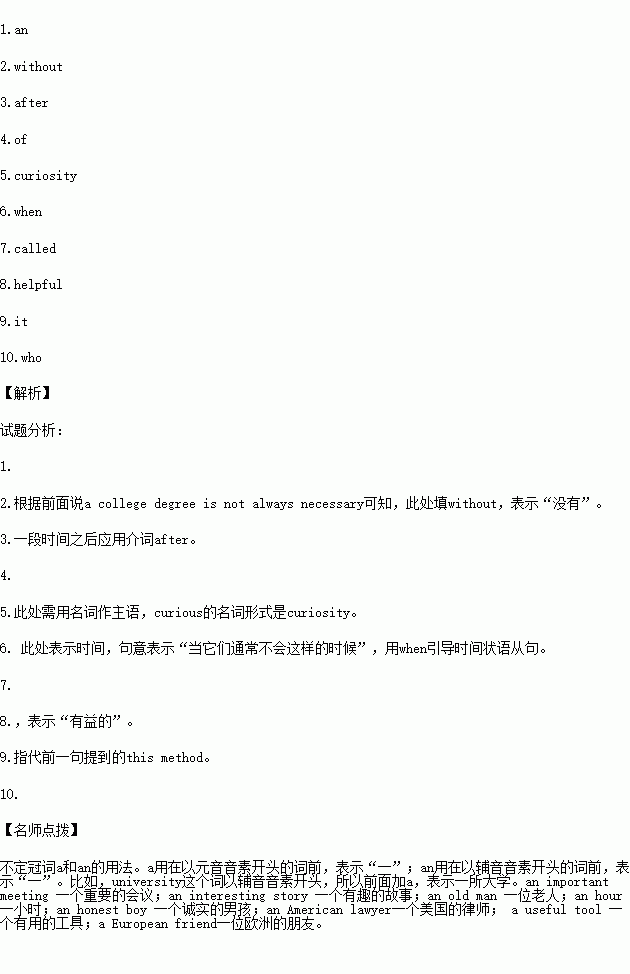题目内容
阅读下面短文,按照句子结构的语法性和上下文连贯的要求,在空格处填入一个适当的词或使用括号中词语的正确形式填空,并将答案填写在答题卡标号的相应位置上。
Although most people believe that formal schooling is required for scientific success, a college degree is not always necessary. 1. excellent example of a man who won fame as a scientist 2. academic(学术的) training is Vincent J. Schaefer. His formal education ended 3. two years of high school when he had to go to work in an untrained job at General Electric. Because 4. his inventive mind and his skill as a model maker, he was soon allowed to try his own experiments in the company laboratory. His natural 5. (curious) made him wonder about clouds. He developed, after many tries, a method of making clouds rain 6. they would not normally do so. This method, 7. (call) seeding, has been very 8. (help) to farmers, and 9. made him win much fame.
Schaefer believes that for people 10. , most of all, are interested in the world and everything in it, a college degree is unnecessary.

